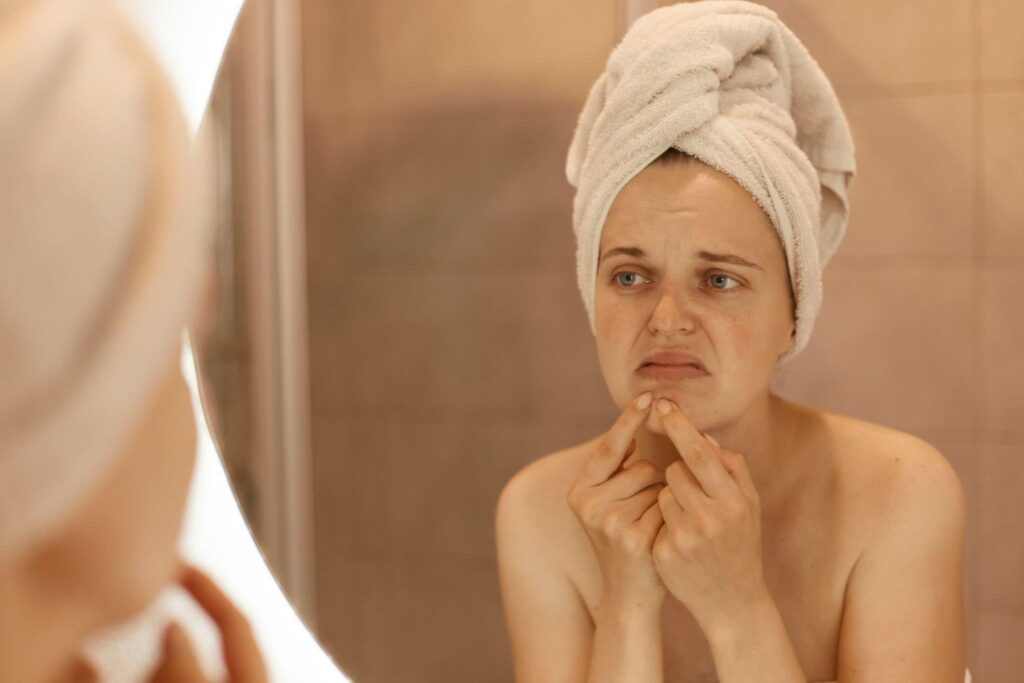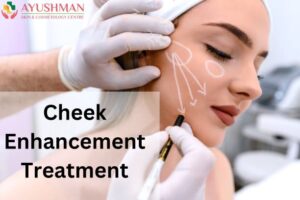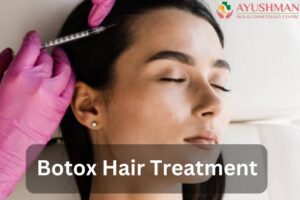Table Of Content
- What Is Scar?
- What Causes Scars?
- What Are The Best Treatments of Scar?
- Benefits of Scar Treatment
- How Can I Prevent Scars?
Having a scar can be challenging. It might alter how we feel about ourselves, but scars can have more significant effects on our lives. Many of us start to find ways to minimize our appearance. Scar treatment in Dwarka is the best option for reducing scar.
Table of Contents
ToggleWhat Is Scar?
A scar is a mark that a healed wound leaves. It results from the natural process of tissue repair, where collagen fibers replace damaged skin cells. Scars differ in appearance and can be caused by surgeries, injuries, or certain skin conditions. Some scars may remain visible and serve as a long-lasting reminder of past injuries. You can get scars anywhere on your skin. Scars have several types, including:
- Keloid scars
- Contracture scars
- Hypertrophic scars
- Acne scars
Scar tissues can also build up inside our body. Internal scar tissue can result from health conditions (Asherman’s syndrome, Peyronie’s disease) and some surgeries. An autoimmune disease creates skin changes resembling scarring from the inflammation in the skin.
What Causes Scars?
As you read scars are part of the body’s healing process. Your skin is the barrier to protect you from harmful substances. Your body creates new tissue made of collagen to help reseal your injury. Collagen plays crucial roles including helping your cartilage protect your joints and plumping up your skin. When a scar develops, new tissue protects you from infection.
What Are The Best Treatments of Scar?
The best scar treatments in Dwarka can reduce a scar’s appearance or size. Some treatments prevent a scar from forming as a wound heals. Scar treatments include:
- Topical Treatments: This is one of the most common avenues for scar treatment. Silicone-based sheets and gels have gained popularity for their ability to hydrate the skin and reduce scars or redness.
- Laser Treatment: Advancements in technology have paved the way for the laser procedure as a powerful tool in scar treatment. Laser treatments target scar tissue and promote collagen production. This option offers a tailored approach to scar reduction from ablative lasers for more severe scars to non-ablative lasers for milder cases.
- Microneedling: Collagen induction therapy (microneedling) involves using tiny needles to create controlled micro-injuries in the skin. This process stimulates collagen production and it helps to break down scar tissue. Scars often become less noticeable.
- Surgical Interventions: Surgical options may be considered by those who have certain scars, especially those resulting from trauma or surgery. Treatments like scar revision involve altering the scar’s appearance through techniques such as excision or dermabrasion. While surgery carries inherent risks, it can be a viable solution for significant scarring that hasn’t responded well to other treatments.
- Home Remedies: Nature often provides remedies for scar treatment. Aloe vera is known for its soothing properties that can help in scar healing. Similarly applying coconut oil and honey may contribute to moisture retention and scar reduction. While these home remedies may not provide instant results, they offer a gentle and accessible approach to scar care.
Benefits of Scar Treatment
Improve Aesthetics: Scar treatments can help to reduce the visibility of scars and improve the overall appearance of your skin.
- Enhance Healing: Certain treatments promote better wound healing. Scar Treatment minimizes the risk of hypertrophic or keloid scars by encouraging the skin to regenerate more effectively.
- Reduce Discomfort: The treatments of scar reduction can alleviate discomfort associated with scars, such as tightness or itching. They provide relief for individuals with sensitive or problematic scars.
- Increase Flexibility: Some interventions like silicone sheets and massage can enhance the flexibility of scar tissue. Scar treatment can prevent stiffness that may occur during the healing process.
- Prevention of Complications: Early scar management can help prevent complications like infections and inflammation, ensuring a smoother healing process and minimizing the risk of further issues.
- Functional Improvement: Scar treatments can aid in restoring the functionality of skin affected by scars, particularly important for scars in areas prone to movement, like joints.
- Psychological Well-being: Addressing scars can have positive effects on mental health, reducing self-consciousness and anxiety related to visible scars.
- Customization: Various scar treatment options cater to different types of scars, allowing for a personalized approach based on the nature and location of the scar.
- Minimized Hyperpigmentation: Scar treatments may help reduce hyperpigmentation. It may promote a more even skin tone and diminish the contrast between the scar and surrounding skin.
- Versatility: Scar treatments are versatile, providing individuals with a range of options to choose from based on their preferences and needs.
How Can I Prevent Scars?
Although you can not prevent injuries that cause scars you can reduce the risk of scar-forming after injury. If your scar does develop, self-care can make the scar less noticeable. You should follow these tips to reduce the risk of scarring:
- Visit your healthcare provider: When your wound leaves a scar, see your provider for an examination. You may need special bandages or stitches to hold the skin together while it heals. You should be sure to follow your provider’s instructions when caring for stitches. You may need topical or oral antibiotics to prevent infection.
- Clean the wound: Wash the area, clean out any dried blood or dirt and apply a bandage over the wound to keep germs out. You can change the bandage often as the wound heals.
- Keep the wound moist: You can apply petroleum jelly or moist burn pads to keep the wound from developing a scab. Scabs can make your scar worse.
- Protect from the sun: Always apply sunscreen or cover the scar to protect it. Sun exposure makes a scar darker.
- Diet: Having low levels of vitamin C or D in your system can make scarring worse. You have adequate high-quality protein in your diet to help your skin make what is needed to heal.
Scars may be an inevitable part of life, but the journey to minimize their impact is a personal one. Whether opting for topical treatments, advanced technologies, or home remedies, understanding your scar and choosing the right approach is key. Embracing the healing process and exploring the myriad options available can empower individuals on their quest for smoother, more resilient skin.
If you are not happy with how a scar looks you can see skin experts. At Ayushman Skin & Cosmetology, we provide you with the best service. So that you may not have to live with a scar that bothers you. We have several effective treatments that can make your scar less noticeable or scars flatter. After getting treatment from us, you may not even notice that scar at all. You should always protect your scars from the sun to decrease your risk of skin cancer.
FAQ’s (Scar Treatment)
Q: How do scars form?
A: Scars form as a part of the body’s response to injury or trauma. The healing process involves the production of collagen fibers, which can create a visible mark on the skin.
Q: Do all wounds leave scars?
A: Not all wounds result in visible scars. Factors like wound depth, size, and individual healing processes influence whether a scar will form.
Q: Are there different types of scars?
A: Yes, various types of scars exist, including hypertrophic scars, keloid scars, atrophic scars, and contracture scars. Each type has distinct characteristics.
Q: Can scars fade over time?
A: Yes, many scars naturally fade and become less noticeable over time. However, some scars may remain more prominent, depending on factors like genetics and the severity of the injury.
Q: Can scars be removed completely?
A: Complete removal of scars is challenging, but treatments can improve their appearance. Surgical procedures and laser therapy may be considered for certain types of scars.




